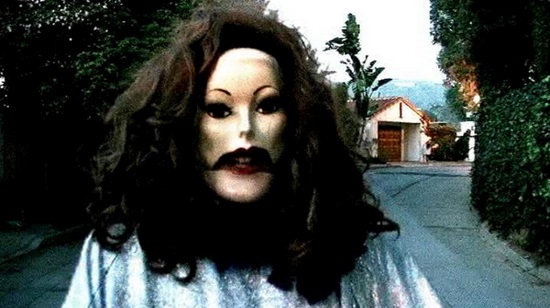Horror film and experimentalism in film go hand in hand. From the wild, tilting and swooping camerawork of Robert Wise’s 1963 The Haunting, to the Brakhage-like flickering cuts and scratched film that have since faded into 90s horror-cliché of Se7en, experimental cinema has long been co-opted by the horror genre to convey otherworldliness: the best horror cinema, much like the avant-garde, strives to continually recreate itself, to innovate, and to react against tradition.
Of course all this works the other way round, as well. Many experimental works centre on abject imagery and themes, or indeed in their abstraction alone foster in the viewer the same feelings of fear or confusion that genre cinema strives for. And then the third way, actual experimental horror films — films that merge both: using abstract narratives and overt horror imagery (but here too a multiplicity of splitting and splintering, from artists films that use horror themes to horror film reconfigured as art film).
In grouping films together under stylistic and genre concerns, its possible to be gleefully revisionist — if there even is a cannon then it’s one which dispenses the idea of high- and low-brow entirely, positioning the work of Polanski, DePalma and Altman next to the Alan Resnick’s creepypastaish Adult Swim output such as This House Has People In It or Unedited Footage Of A Bear; Derek Jarman and Maya Deren’s shorts with works that coast on a fizzing layer of subreddit conjecture and ‘midnight movie’ blog posts; Eurosleaze with the Japanese Avant-Garde; Fulci and Bava with Buñuel and Bergman.
From shockers that dispense with plot through sheer ineptitude or overactive censors to tightly-worked experimental narratives, to label any work as ‘experimental horror’ pushes it from one marginal category into another, together making an even more marginal third. With all of this firmly in mind we’ve chosen some of the more interesting experimental horror films — and of course a list of thirteen can but scratch at an idea (where Possession? Where Begotten? Where The Shout?) that plays out beyond its own slippery borders.
Hexus Press have just released Gary J Shipley’s "Ferocious amorphous" novel Warewolff! available on their website.


